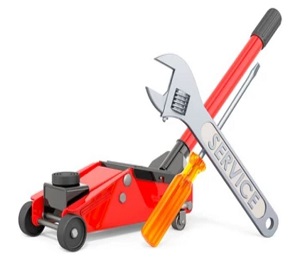
A floor jack has an adequate amount of hydraulic fluid or oil to provide the required output by exerting minimum input force. When a person rotates the pump, it pushes the fluid that induces the cylinder to move upward to raise the vehicle. Hence, hydraulic fluid is the main component of a floor jack. Sometimes, a floor jack could not sustain the pressure and fell. The most probable reason behind this malfunction is the leaking of hydraulic oil. It significantly reduces the efficiency of a floor jack. That’s why it is essential to fix the issue to restore the functioning of a floor jack.
Ways to fix the hydraulic fluid leaking
The hydraulic fluid is mineral oil or water that significantly reduces the input force and amplifies the effect of an output force. It works as a mediator for transferring the power for the working of a floor jack. Hydraulic fluids are used in every powerful machinery and equipment, including hydraulic brakes, aircraft control systems, industrial equipment, etc. When the hydraulic fluid offers no compressibility, it can yield optimum results.
Let’s discover how it works.
Settle it on a work surface
Choose a clean and plane work surface before starting to fix the leak. A solid work surface is ideal as it provides balance and support. A floor jack is heavy, so choose a stable and hard surface to sustain the weight of a floor jack. Ensure that the surface is clean and there is no debris or residues to place any hurdle.
Release the valve screw
After placing a floor jack, look for the valve screw and lose it by rotating. It will give access to the O-rings in a floor jack. The screw helps in lifting and lowering the jack surface. Loosen the screw valve by rotating it in a counter-clockwise direction.
Make a floor jack to stand straight.
Make a floor jack stand so that the side with the screw faces the ceiling. This position is quite unstable as the floor jack is heavy and could flip anytime. Therefore, use a heavy object to hold a floor jack in its place. Start removing the screw until it detaches from a floor jack.
Draining of the fluid
Remove all the fluid from a floor jack as it may contain any dirt or contaminants. If there is debris in a floor jack, there is more likelihood of a floor jack leaking. Use the drain pan and lower the floor jack until all the fluid drains into the pan through the valve screw hole. Now place the floor jack back into its position.
Replace the faulty O-ring
If the o-rings do not function properly due to any damage or fault, it might be a reason behind the leaking. Replace these rings with a new one by using a flat-handled screwdriver. Now insert the new o-ring after removing the old one.
Refill jack with fluid
After replacing the ring, fill the jack with the fluid. Use the funnel while refilling so that no oil particles spill out. Floor jack manufacturers always recommend hydraulic fluid for specific floor jacks. Therefore, always try to use that particular fluid for your jack.
Replace the screw
When you finish all the necessary steps, place the valve screw and rotate it clockwise. Move the handle back and forth many times to circulate the fluid through the jack.
Conclusion
A hydraulic jack is a valuable component of a floor jack. Therefore, any leaking will disturb the functioning of a floor jack. Fixing the leak will restore the functioning of a floor jack. When one observes leaking of the hydraulic oil and assumes a floor jack is non-functional. Then its amendment is not a big issue and requires only a little effort to fix it.
- Craftsman Jack Stands Review - October 18, 2022
- OTC 1545 Motorcycle Lift Review - October 18, 2022
- Pro Lift Jack Stand Review - October 17, 2022
